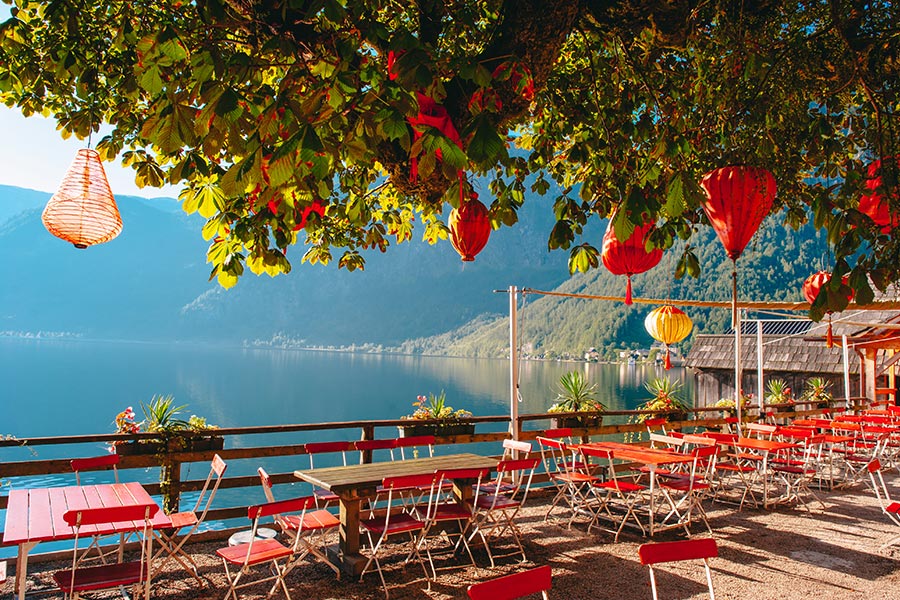Schedule a meeting
Let's discuss the details
Schedule a meeting at one of the offices or online. A lawyer will analyze the situation, calculate the cost and help you find a solution based on your goals.
Prefer messengers?
When we first visited Austria, our daughter Alison got excited about moving there. And for several years, she has not given up the idea. She has chosen German as a foreign language to study at school and plans to enter an Austrian university.
My wife and I disapproved of the idea at first but then got used to it and even liked it. We do not want Alison to go there alone, so we have decided on moving together right after she finishes school.

Edon, 17 years old
Grandson of an investor with Grenada citizenship and a student at St George's University
Clients’ names and photos have been changed

This case was provided by our expert

Head of the Austrian office
Residence permit in Austria: how to relocate to Europe in 3 months
Share:
Schedule a meeting
Schedule a meeting at one of the offices or online. A lawyer will analyze the situation, calculate the cost and help you find a solution based on your goals.
Prefer messengers?
Mark’s aunt moved to Austria ten years ago. Since then, the investor and his family have sometimes come to Austria to visit her. Mark’s daughter got enchanted with the country and persuaded her parents to move there together.
To move to Austria, the investor needs to obtain an official status in the country: a residency permit or citizenship. Without it, Australians may spend no more than 90 days in a row in Austria. Looking for a solution, Mark came across our article “Residence permit in Austria: how to become a resident of a European country”.
The investor got interested in obtaining an Austrian residence permit for financially independent persons, so he contacted Immigrant Invest. Mark wanted to know under what conditions he could get the status. He also wondered how to rent a property in Austria for the long term: not all landlords are ready to enter lease agreements with foreigners.

Austria is a land of mountains and lakes. 98% of bathing waters in Austria are of excellent quality
To get Austria residency for financially independent persons, one needs to meet all the following requirements.
To meet all the requirements is not enough, as Austrian residence permits are issued according to the annual quotas. The risks are quite high: if you do not manage to get the quota, you have to wait for a year to try again.
Mark turned to Immigrant Invest
Online registration on Mark’s behalf
Mark submitted the application
Only 450 residence cards for financially independent persons are issued each year in Austria. Yet, many more people would like to get the status. The quota is allocated to a person but not a family, so Mark needed to get three.
If there is a single mistake or uncertainty in the application, the applicant will most likely get rejected. To improve the odds of success, applicants seek the assistance of lawyers.

Lyle Julien,
Investment programs expert
For those who wanted to get a residence permit in Austria in 2022, we started accepting applications on February 15th, 2021, almost a year in advance. The preparation process is thorough and complicated. Our lawyers spend at least two months preparing all the necessary documents for an Austrian residence permit.
We help formalise the status of no more than 50 families per year. Having got the 50th application, we stop accepting them. Usually, it happens somewhere in June, so the earlier you consult us, the better.
To receive the quota, you need to apply as early as possible at the beginning of the year. Applications can be submitted either in Austrian consulates around the world or in the integration departments in Austria. Mark’s family decided to apply in Australia not to spend much time on a trip to Austria.
To be admitted, applicants need to make an online appointment in advance. Registration opens on a certain day and time, which is announced on the websites of the Austrian consulates. It usually opens somewhere in November, and dates vary from consulate to consulate.
On November 26th, 2021, the Immigrant Invest’s lawyer registered Mark’s family for January 3, 2022.
Consultation and the preliminary check
Language exam
Trip to Austria
Collection of documents
Online registration
Submission of an application
Approval of the application
D visas obtainment
Receipt of the residence permit cards. Moving to Austria
1. Consultation and the preliminary check. Mark turned to Immigrant Invest on April 25, 2021. Our Compliance Anti Money Laundering Officer conducted the preliminary check to make sure there were no reasons for Mark’s application to get rejected. After the check, Mark signed a contract.
2. Language exam. From May to August, Zoe attended a crash course on German. In September, the family took their German language exams at Sydney’s examination centre of the Goethe-Institut and got the certificates. Certificates issued by the TELC GmbH and ÖIF are also acceptable.
3. Trip to Austria. Mark and Zoe visited Austria to choose a place of residence. Our managers showed the most suitable properties matching their requirements. Mark decided to rent a small house in Perhtolstdorfe, a very quiet and beautiful village near Vienna. On this very trip, Mark took out the necessary insurance.
4. Collection of documents. By November, the package of documents was ready. Mark had the following documents collected, translated into German and certified:
5. Submission, consideration and approval of the application. The application for Austrian residency must be submitted in person, and all the family members included have to attend the meeting. The fee for processing an application is €120 for each person, and another €20 is required for being fingerprinted.
On November 26th, 2021, the Immigrant Invest’s lawyer made an online appointment for the first working day in 2022 on Mark’s behalf. On January 3d, Mark’s family visited the Austrian consulate and submitted the application.
In two-and-a-half months, Mark’s application was approved. Then, the department sent an official invitation to the Austrian Consulate in Australia that stated that Mark’s family was then eligible for a short-stay visa D.
6. D visas obtainment. The family needed to obtain a special visa — Entry Visa D — and enter Austria on it to collect residence permit cards. The fee for issuing such a visa is €150 per person. Mark’s family visas were ready in two weeks.
7. Moving to Austria. In April, the family entered Austria with their D visas. Before receiving residence permit cards, Mark needed to get registered in the house he rented and opened an account in an Austrian bank. To this account, Mark transferred €80,000, an amount of money required for the family maintenance during the year.
Finally, the family received their residence permit cards and stayed for permanent residence. The cost for issuing residence cards is €20 per person.
€360 — submission of the application
€450 — D visas obtainment
€60 — fingerprinting
€60 — residence cards issuance
Alison finished school in December 2021: that is the way they do it in Australia. She graduated after the tenth grade when she was 17. The graduate is planning to enter the University of Vienna.
To study in Austria, Alison needs to prove she knows German at a B2—C1 level, but her knowledge is not good enough. She will also have to take additional exams because Australian school leaving certificates are not equivalent to Austrian ones.
So, Alison started studying at university courses specially designed for foreign applicants to improve her German and prepare for exams. You do not need to take any exams to sign up for these courses. As for their duration, studies may take 1 or 2 semesters. Everything depends on the student’s initial knowledge.

Alison,
Mark’s daughter, a school graduate
I want to get a quality European education and work in a prestigious company. I am pleased with Austrian universities as they are among the top European universities. I would prefer to study at the University of Vienna: it is the oldest, the largest and the most high-ranked university in Austria.
Austrian citizenship can be obtained after 10 to 30 years of living in the country. Furthermore, foreigners have to renounce their first citizenship to do it. The more attractive option is obtaining the status of a permanent resident.
Permanent residency in Austria can be acquired after five years of holding residence permit cards. Applicants are required to permanently live in Austria and not be absent for more than ten months for the entire period.

Edon,
Grandson of an investor with Grenada citizenship and a student at St George's University
My wife and I are not going to get Austrian citizenship as we do not want to lose an Australian one. But our daughter will choose for herself. If she decided to tie her life to Austria tightly and become a citizen, so be it.
Immigrant Invest is a licensed agent for government programs in the European Union and the Caribbean.